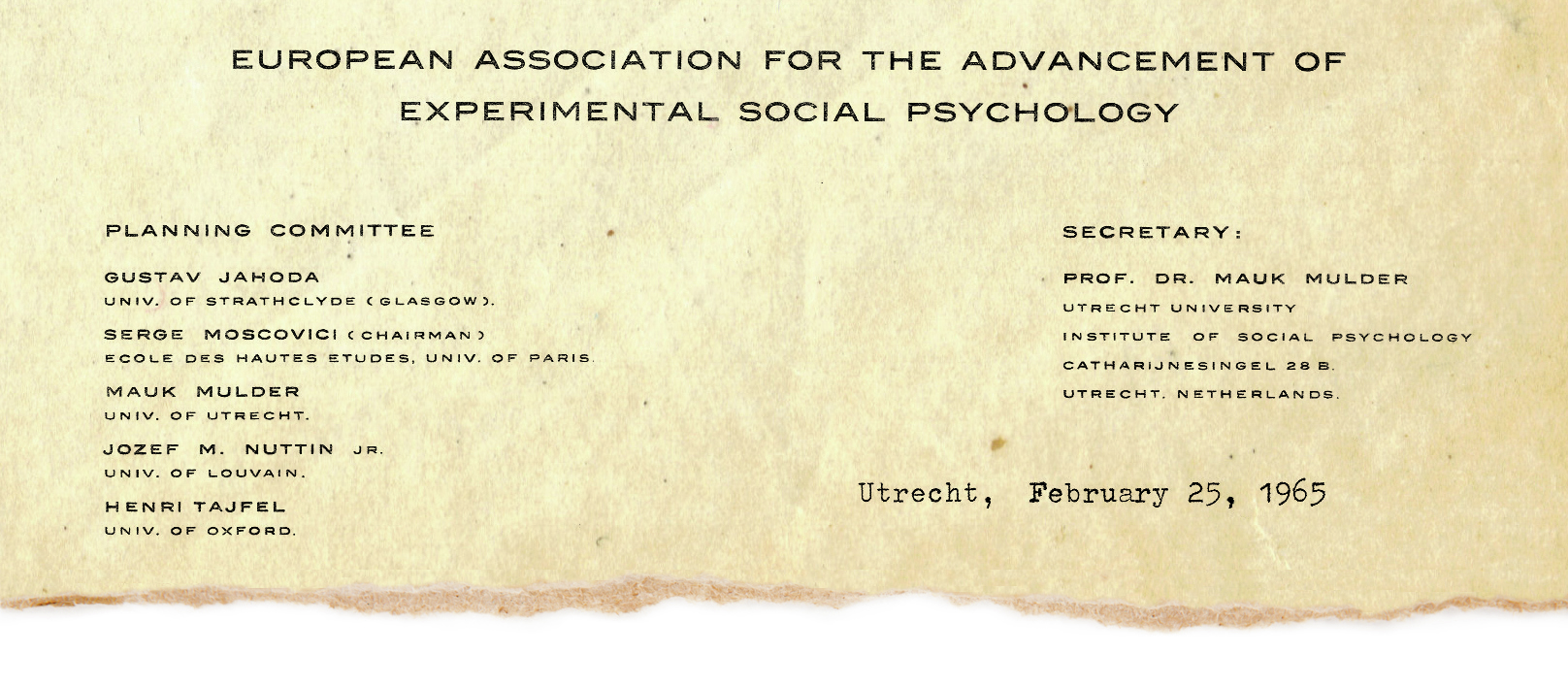The Name of the Association
In 2008 the Association decided to change its name from the European Association of Experimental Social Psychology (EAESP) to the European Association of Social Psychology (EASP). What’s in a name? some might feel. Why did it take so long? others might think. It is interesting to observe that the issue of the name of the Association is in fact not at all a recent one. It has been around since the foundation of the Association. Reflecting back over the period when the Association was founded, Tajfel remarked:
No one understood the term in any very rigid or restrictive sense. It meant to represent our preoccuptation with developing work of a fundamental kind. The term ‘experimental’ did not really express what we meant; many of us felt that ‘experimental’ social psychology is not necessarily the only way, or even the best way, to pursue knowledge in this field. But no better term could be found to express, however imperfectly, the aims that we set for ourselves.
In 1978, on the occasion of the General Meeting at Weimar, the Executive Committee actually proposed to delete ‘experimental’ from the name of the Association, because “the present title has become unnecessarily restrictive and unhelpful.” A slight majority voted in favor of the proposal, but the required 2/3 majority was not reached. In 1987 Geoffrey Stephenson in his presidential address at the Varna General Meeting raised the question again, but felt that it would not be productive to open discussion on the issue, arguing that “there are no doubt good symbolic reasons and good practical reasons for maintaining the status quo,” in spite of his recognition that ‘experimental’ was clearly not the common denominator for the research of the association’s members.

In retrospect it is quite understandable that the founders of the Association looked for a way to differentiate the social psychology they had in mind from the predominantly descriptive work that was rather common at European universities in those days. The term ‘experimental’ tried to capture what they had in mind: Solid theory based empirical research! There was however no prescription that experimentation strictu sensu was the only road to valid knowledge, as long as the methods used lived up to scientific standards. Nevertheless it should be admitted that in those days, at least partly under the influence of North American colleagues, experiments were viewed as superior to other methodologies. As an illustration, a look at the research that was designed during the first summer schools indicates that training focused heavily on experimentation. But all of that is the past. Nowadays, no social psychologist has to be afraid of being accused of being unscientific unless they would describe themselves as an experimental social psychologist. There are many ways to conduct solid scientific research, experiments being only a subset thereof. The published research of the members of our Association in our own Journals, and in others, constitutes a perfect illustration of the above.
To close the circle, let me add a quote from Gustav Jahoda, one of the founders of the Association, in a contribution on the issue in our Association’s Bulletin (2007):
As one of the survivors from the period when EAESP came into existence, I may perhaps be permitted a brief note of support for the proposal for the dropping of ‘experimental’. At the time a good deal of social psychology in Europe remained rooted in a tradition that was largely descriptive. The founding members regarded it as insufficiently rigorous, and in order emphasize their new departure decided to include the term 'experimental' in the name of the Association. However, even at that early period membership was in practice not strictly confined to experimentalists. Today the situation is very different and a deliberate assertion, understandable under the then prevailing circumstances, is no longer needed. There are now a variety of approaches; and non-experimental cannot be equated with unscientific.
